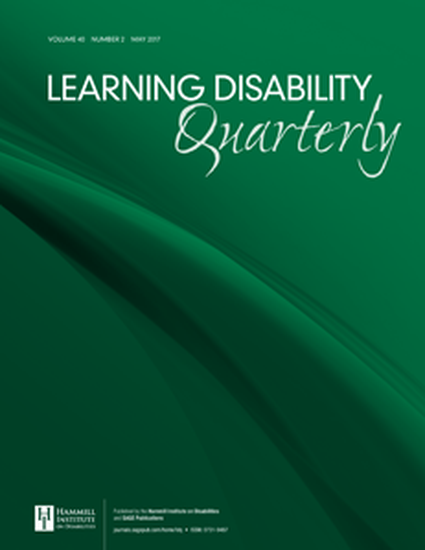
Article
Cognitive Processing Deficits and Students with Specific Learning Disabilities: A Selective Meta-Analysis of the Literature
Learning Disabilities Quarterly
(2010)
Abstract
Many practitioners and state education agency staff would likely agree that the accuracy and consistency of specific learning disability (SLD) eligibility decisions is in need of improvement. One component of the SLD definition particularly controversial in the identification procedures is the evaluation of cognitive processes, primarily due to a lack of information about the role they might play in informing an SLD diagnosis and eligibility for special education services. A meta-analysis of 32 studies was conducted to examine the cognitive processing differences between students with SLD and typically achieving peers. The analysis found moderately large to large effect sizes in cognitive processing differences between groups of students with SLD and typically achieving students. These differences are of sufficient magnitude to justify including measures of cognitive processing ability in the evaluation and identification of SLD.
Disciplines
Publication Date
Winter 2010
Citation Information
Evelyn S. Johnson, Michael Humphrey, Daryl F. Mellard, Kari Woods, et al.. "Cognitive Processing Deficits and Students with Specific Learning Disabilities: A Selective Meta-Analysis of the Literature" Learning Disabilities Quarterly Vol. 33 Iss. 1 (2010) Available at: http://works.bepress.com/michael_humphrey/7/
